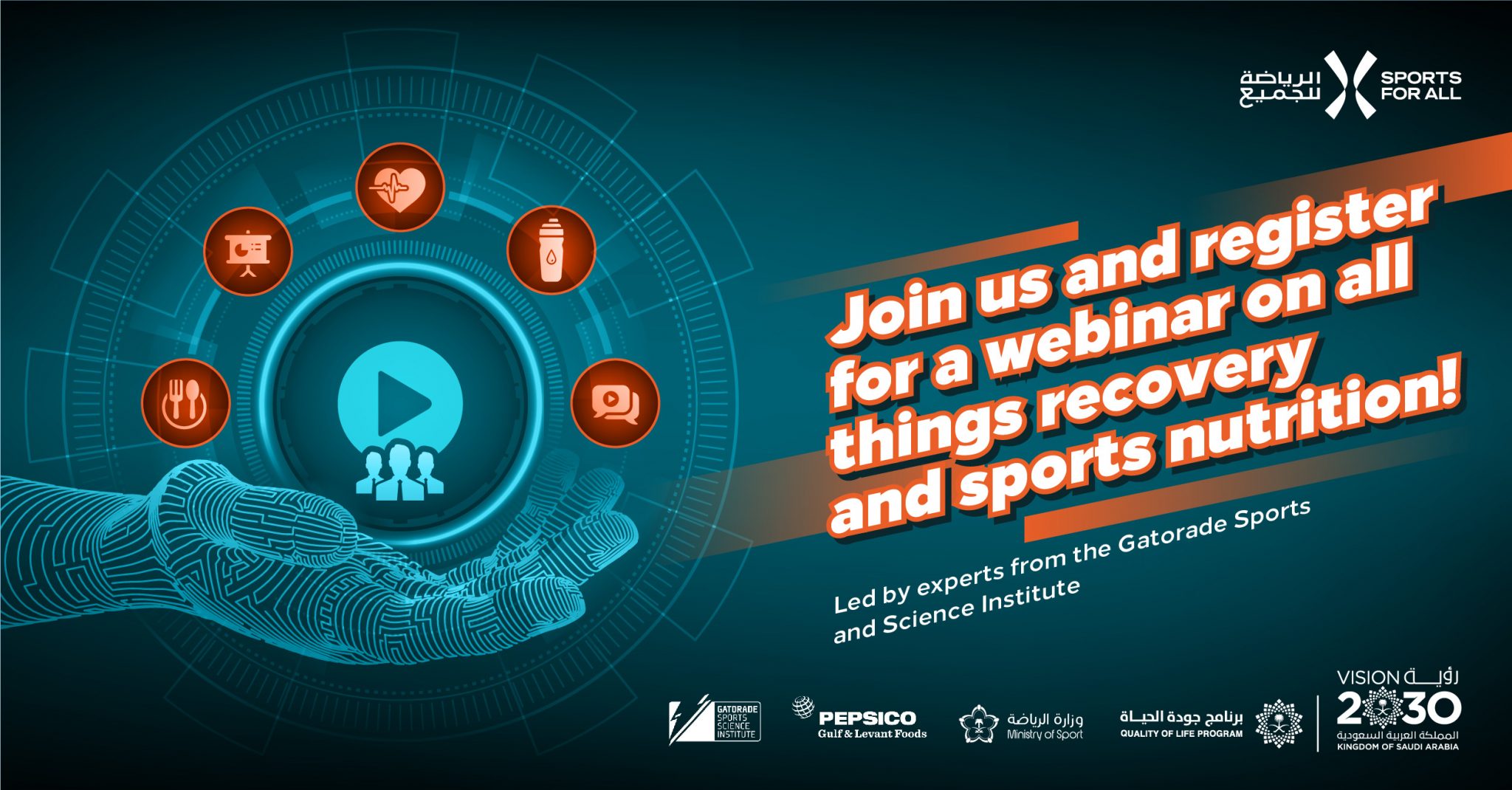
Introduction to Sports Recovery and Performance
Recovery is a trending topic in the field of sports science, and its importance is ever-growing, particularly within the realm of elite sport. The significant increase in scientific publications over the past decade underscores the rising interest in this area as sports teams continually seek new methods to gain a competitive advantage during competitions.
Recovery is not just about the physical bounce-back from training and games. It encompasses a holistic approach that includes the restoration of an athlete’s physical, psychological, and emotional well-being. This comprehensive recovery process is crucial for athlete preparation and contributes to enhancing performance at elite levels in team sports. It’s a fundamental part of the training cycle, standing as not just a response to fatigue, but as a proactive means to boost an athlete’s overall capability.
Understanding Sports Recovery and Performance
- **Recovery & Physical Health:** Physical recovery methods include massage, cold water immersion, compression garments, and proper sleep, all aimed at reducing muscle soreness and fatigue.
- **Recovery & Psychological Health:** Mental recovery can be just as important, involving strategies like mindfulness, mental relaxation, and adequate breaks from the sport to prevent burnout.
- **Recovery & Performance:** Linking recovery to performance, science demonstrates that effectively managed recovery protocols substantially enhance an athlete’s performance capabilities, resilience to injury, and overall health.
- **Evolving Science:** As the science of sport evolves, so do recovery methods. What was once a simple directive to rest has become a complex series of strategies personalized to each athlete.
The Importance of Recovery in Elite Athletics
- **For Athletes:** Proper recovery is recognized as an essential component of training regimens in elite sports. Athletes who follow structured recovery protocols often display improved performance, are less susceptible to injury, and can maintain a high intensity of play for longer periods.
- **For Team Staff:** The focus typically falls on athlete recovery, but the importance of recovery for team staff members, including coaches and performance staff, is an area of potential growth. Their well-being directly impacts their ability to perform at their best, which in turn affects the athletes and the overall performance of the team.
- **Balancing Act:** It becomes clear that managing recovery is a balancing act, requiring a seamless blend of interventions that cater to both the physical and psychological demands placed on individuals involved in elite sports.
- **A Forgotten Element:** Despite its clear benefits, recovery for team staff remains a largely overlooked aspect. Considering their extensive influence on team performance, this aspect warrants further attention and incorporation into sports protocols.
It is evident that the discourse around recovery strategies has broadened, from focusing solely on athlete recovery to encompassing the entire support network involved in elite sports teams. As research and practical application continue to grow, it becomes increasingly clear that recovery is a vital piece of the puzzle for success in high-performance sports.
The Forgotten Aspect of Elite Sports
Highlighting the Overshadowed Recovery of Coaching and Performance Staff
– **Recovery in sports:** Typically focused on athletes, not staff
– **Physical and psychological function:** Similarly essential for staff members
– **Restoration of function:** Key to maintaining high performance
Elite sports commonly emphasize the importance of recovery for athletes’ performance. Athletes are provided with comprehensive recovery protocols aimed at restoring their physical and psychological function. This could include a variety of strategies ranging from nutrition, sleep, physiotherapy, and psychological support. These recovery measures contribute significantly to athletes’ ability to perform at their peak repeatedly.
However, the spotlight rarely falls upon the coaching and performance staff, who play an equally critical role in the ecosystem of elite sports. Just like the athletes they train and manage, coaching and performance staff experience considerable stress and fatigue. The stressors faced by these professionals are multifaceted, involving long hours of planning, analyzing performances, and on-the-ground coaching.
Their roles demand constant analytical thinking, decision-making under pressure, and the capacity to sustain interpersonal relationships with a diverse group of athletes and other staff members. The burden of these responsibilities can take a toll on both their physical and psychological well-being. Without appropriate recovery opportunities, the staff’s ability to function at an optimal level and provide effective support to the athletes may deteriorate. It is necessary for sports organizations to recognize that the recovery needs of coaching and performance staff are as important as those of the athletes.
The Significance of Including Staff Recovery in Athlete Performance Programs
– **Parallel Recovery Systems:** Mirroring athlete recovery protocols for staff
– **Improved Performance:** Benefits both athletes and team outcomes
– **Acknowledgment:** Recognizing staff efforts maintain team dynamics
The concept of constructing recovery protocols for coaching and performance staff parallel to those created for athletes is slowly gaining traction. Instituting methods such as stress management workshops, ensuring adequate rest periods, and facilitating a supportive work environment can make a significant difference in staff recovery.
Recovery for staff members does not merely mean physical rest; it also encompasses the need for psychological resilience building, particularly in high-pressure tournaments and competitive seasons. By incorporating strategies such as mental health days, access to sports psychologists, and relaxation techniques, the performance of these vital cogs within the sports machinery can be maintained or even enhanced.
The benefits of including coaching and performance staff in recovery programs extend beyond their individual welfare. When staff members are well-rested and psychologically sound, they can better serve the athletes, leading to improved performances and potentially more victories. Moreover, acknowledging the hard work and effort of the entire team, including the staff, enhances overall team morale and solidarity.
Ultimately, the extension of recovery programs to include coaching and performance staff accentuates the holistic approach needed in elite sports. It’s an acknowledgment of the interconnectedness of all roles and the understanding that every member of the sports organization contributes to the end goal of athletic excellence. Care for the recovery of all involved ensures a thriving environment conducive to success.
The Principles of Recovery in Sport
Physical and Psychological Components of Recovery
When we talk about recovery in sports, I am reminded of the multi-faceted nature of this concept, which is just as relevant to me as a coach or performance staff member as it is to the athletes I work with. Recovery isn’t just about the body; it’s about the mind as well. Just like athletes, we need to look after our physical and psychological well-being to stay at the top of our game.
– **Physical recovery:** Involves activities like getting adequate sleep, managing nutrition, and participating in physiotherapy or massage to prevent or address injuries and fatigue. As someone behind the scenes, engaging in regular physical activity helps me keep up with the demanding pace of elite sport. Ensuring that I am physically in shape means that I am embodying the principles I encourage in the athletes.
– **Psychological recovery:** Sometimes overlooked, psychological recovery is crucial for maintaining a sharp and focused mindset. For staff, it can include a range of strategies such as mindfulness practice, engaging in hobbies outside of work, or seeking counsel from a psychologist. Personally, I find that maintaining a work-life balance and having a robust support system is key to my psychological recovery.
Recovery as a Fundamental Element in Athlete Preparation
Beyond the benefits to individual staff members, recovery principles are interwoven with the success of our athletes. It’s a pillar in preparing athletes not only for competition but for the rigors of training and the demands of their sport.
– **Tailored recovery strategies:** Just as each athlete has personalized recovery needs, so do staff. It’s important to me that my recovery strategies align with my role’s demands, allowing me to be attentive and responsive to the athletes’ needs.
– **Team performance:** Supporting athlete preparation involves a high degree of physical and psychological input from the coaching and performance staff. Recognizing this, I ensure we create an environment where staff recovery is not ancillary but an integrated component of athlete preparation.
– **Adapting to competition demands:** During seasons and tournaments, the stress levels for everyone involved increase. My approach is to adapt staff recovery strategies to these heightened demands, ensuring that we all stay focused and perform effectively under pressure.
Recovery is evidently not just about how athletes can bounce back but also about how as staff, we can sustain and improve our performance. In a field where the marginal gains can make all the difference, I firmly believe in championing a culture where recovery for staff is given the emphasis it rightly deserves. This way, we can all contribute to the athletes’ success and the organization’s thriving performance culture.
The Role of The Recovery Room
An Overview of The Recovery Room’s Services and Equipment
In my role overseeing the recovery room, I’ve made it my mission to provide a sanctuary where coaching and performance staff can recharge both physically and mentally. Our space is equipped with state-of-the-art technology and offers a variety of services designed to facilitate recovery. Here’s a glimpse into what we offer:
– **Cryotherapy:** An advanced cooling treatment that helps reduce inflammation and accelerate recovery.
– **Massage Chairs:** To aid in relaxation and muscle recovery, we provide luxury massage chairs that focus on releasing tension.
– **Compression Therapy:** Utilizing specialized equipment that promotes blood flow and aids in the removal of lactic acid from the muscles.
– **Sleep Pods:** We have invested in sleep pods that encourage power naps, enhancing cognitive function and overall alertness.
– **Nutrition Station:** A station stocked with hydration and nutrition essentials tailored to recovery needs.
– **Mindfulness Area:** A quiet zone for meditation and breathing exercises, facilitating mental recovery.
Each of these elements within the recovery room is carefully chosen based on evidence-based practices that align with our goals: restoring the team staff’s function and performance levels. By investing in this space, we acknowledge the demands placed upon our staff and show a commitment to their well-being, paralleling the focus we place on athlete recovery.
Walk-in Recovery Sessions for Enhancing Wellness and Performance
The Recovery Room isn’t just a facility—it’s a pivotal part of our performance strategy. We encourage staff to utilize walk-in recovery sessions, embedding this practice into their regular routine. The aim is to highlight the importance of recovery as part of their professional responsibilities, not as an afterthought. Here’s how we make it work:
– **Flexible Scheduling:** Recovery sessions are designed to fit seamlessly into staff’s schedules, whether early morning, post-training, or before bed.
– **Personalized Plans:** Each member of the staff receives a tailored recovery plan based on their role and specific needs.
– **Wellness Tracking:** We monitor the well-being of our staff through various metrics, adjusting recovery plans accordingly.
– **Education Initiatives:** Ongoing educational support is provided to ensure staff understand the significance of recovery and how to optimize it.
These walk-in sessions have become integral to supporting the staff’s ability to maintain high performance consistently. They offer an opportunity for staff to step back from the demands of their work, focus on self-care, and ultimately emerge rejuvenated and more effective in their roles.
The initiative to open the Recovery Room and implement these sessions reflects our broader philosophy. We believe in nurturing every individual within our organization as we pursue our collective goals. The emphasis on recovery is an acknowledgment that our staff’s health is as critical to our success as our athletes’ achievements.
Advanced Recovery Methods
Innovations in Athletic Recovery Techniques
Continual advances in sports science have furnished us with an array of sophisticated recovery methodologies. I am committed to integrating the most effective practices to enhance recovery outcomes for our staff:
– **Focused Foam Rolling:** Implementing foam rolling as a method to decrease muscle soreness and enhance flexibility.
– **Massage Protocols:** Utilizing evidence-based massage techniques to promote muscle healing and relaxation.
– **Custom-Fit Compression Garments:** Providing compression garments designed to improve circulation and muscle recovery post-exercise.
– **Dynamic Stretching Routines:** Integrating stretching as a key element to maintain muscle health and performance.
– **Optimized Nutritional Support:** Offering nutrition plans tailored to individual recovery needs, focusing on macro and micronutrient replenishment.
– **Structured Active Recovery:** Encouraging low-intensity exercise that helps clear metabolites and restores physiological systems.
– **Quality Sleep Solutions:** Emphasizing the importance of sleep in recovery and providing guidance on achieving restorative sleep.
– **Water Immersion Therapy:** Exploiting the benefits of hydrotherapy for its muscle recovery and regenerative effects.
Each technique goes through rigorous evaluation before being adopted in our program, ensuring we only utilize methods that have a substantiated positive impact.
Impact of Advanced Recovery on Performance and Endurance
The integration of these advanced recovery techniques has a profound effect on overall performance and endurance. By prioritizing recovery, I have observed numerous benefits:
– **Enhanced Muscle Repair:** New methodologies expedite muscle repair, reducing downtime and boosting overall performance levels.
– **Improved Injury Prevention:** Incorporating a comprehensive recovery strategy lowers the risk of injury, protecting our staff from avoidable setbacks.
– **Increased Endurance:** Optimal recovery directly translates to improved endurance, as the body is more adept at handling the rigors of prolonged activity.
– **High Mental Acuity:** Implementing mental recovery practices ensures staff retain high levels of concentration and decision-making capabilities.
– **Optimal Physical Readiness:** As recovery strategies are personalized, each staff member reaches their peak physical condition for effective job performance.
It is no secret that incorporating innovative recovery methods gives us a competitive edge. The factual data from recent sports science research underscores the necessity for a holistic approach, and with my dedicated focus on making use of these strategies, I help maintain an environment where our team not only survives the exhaustive demands of elite sports but thrives amidst them.
Daily Recovery Strategies for Elite Athletes
Best Practices for Daily Recovery Procedures
As part of our comprehensive performance strategy, we place a significant emphasis on implementing daily recovery strategies for our elite athletes to ensure they’re at their peak for training and competition. Through the application of a variety of methods, we cater to the unique needs of each athlete.
The components of our daily recovery regimen include:
– **Hydration Sessions:** Proper hydration is paramount to recovery, so we ensure that athletes have access to personalized hydration strategies post-training and competition.
– **Nutrition Plans:** Athletes receive individualized meal plans rich in nutrients essential for muscle repair and energy replenishment.
– **Active Recovery Workouts:** These include light exercises, such as swimming or cycling, that promote blood flow without overtaxing the muscles.
– **Physical Therapy:** Regular sessions with physiotherapists address any ongoing issues and prevent potential injuries.
– **Stretching and Flexibility Routines:** Guided sessions help to improve range of motion and reduce muscle stiffness.
– **Mental Coaching:** Mental recovery is as important as the physical, so we include psychology sessions to manage stress and enhance focus.
We have found that adherence to these daily procedures greatly enhances recuperation times and overall athletic readiness.
The Effectiveness of Routine Recovery Protocols on Athletic Longevity
In my years of experience, routine recovery protocols have time and again proven to bolster athletic longevity. The correlation between well-managed recovery plans and extended career duration is undeniable. These protocols are not just about immediate relief post-exercise but are a proactive approach to managing an athlete’s health over the long term.
Key elements contributing to the effectiveness include:
– **Consistency:** Establishing a regular routine ensures that recovery becomes as fundamental as training itself.
– **Tailored Programs:** Recognizing the individuality of each athlete, recovery programs are customized to align with their specific physiological and psychological profiles.
– **Multidisciplinary Approach:** Merging physical therapy, nutrition, psychological support, and other modalities, provides a comprehensive recovery process.
– **Advanced Monitoring:** Using the latest in wearable technology, we continuously monitor athletes’ recovery progress, informing decisions about training loads and intensities.
By integrating these strategies into our athletes’ regimens, we are providing them with the resources to not only excel in their sport but also maintain a healthier, more sustainable career trajectory. Emphasizing recovery in this manner reflects our organization’s understanding that long-term athlete care is a critical factor in achieving lasting success and legacy.
Psychological Aspects of Recovery in Sports
The Mental Side of Recovery in Athletic Performance
In my journey through high-performance sports, I’ve become acutely aware of the mental aspect of recovery. We often emphasize the physical – the ice baths, the massages, and the protein shakes – yet the psychological elements warrant equal spotlight. The mental resilience and toughness required to compete at elite levels are extraordinary. Through our recovery programs, we give due consideration to the psychological restoration.
Considering the psychological facet involves:
– **Stress Management:** Managing stress is a pivotal component of mental recovery. We teach athletes coping mechanisms to control and reduce stress, which is crucial after high-pressure competitions.
– **Sleep Quality:** Emphasizing the critical role of sleep in mental recovery, we provide athletes with strategies for improving sleep hygiene and maximizing restorative sleep stages.
– **Emotional Support:** Athletes have access to a supportive environment where they can share and process their thoughts and feelings, an often-overlooked aspect of psychological well-being.
– **Mindfulness and Relaxation Techniques:** Incorporation of mindfulness exercises helps athletes center themselves and refocus, significantly aiding recovery.
– **Periodic Mental Breaks:** These are scheduled to prevent mental burnout. They may include time away from the sport or engaging in different activities that allow the mind to reset.
Understanding and addressing these psychological components enhances an athlete’s ability to recover holistically, supporting both their mental health and their ongoing performance goals.
Integrating Psychological Recovery into Training Regimens
At the core of my philosophy, I am a strong proponent for the integration of psychological recovery within the training regimens of athletes. Unfortunately, it is a component that is frequently overshadowed by the more tangible aspects of training. To rectify this, I ensure that sports psychologists become an intrinsic part of the training team.
They contribute through:
– **Scheduled Mental Skills Training:** Just as athletes have physical training schedules, they also participate in regular sessions to build mental fortitude, concentration, and visualization skills.
– **Recovery-Oriented Mindset Training:** Athletes are trained to adopt mindsets that view recovery as critical to their success, thereby enhancing motivation for engaging in recovery activities.
– **Feedback Systems:** Athletes have platforms where they can communicate their psychological state, ensuring recovery programs are adjusted to their mental demands.
– **Monitoring Mood States:** Mood and affect are regularly assessed, enabling preemptive intervention should psychological distress signals emerge.
Through this comprehensive integration, psychological recovery is not perceived as an afterthought but as an essential ingredient to outstanding performance and longevity in sports careers. This holistic approach ensures we cater to mind and body, recognizing the undeniable interconnection between the two in the pursuit of sporting excellence.
Case Studies: Elite Athletes and Recovery Programs
Examining Real-world Applications of Recovery Strategies
In analyzing the use of recovery programs in elite sports, I’ve observed how personalized recovery plans are implemented with precision. These programs are not cookie-cutter routines but are designed after meticulous assessment of each athlete’s performance metrics and personal feedback. Here are some components that have stood out in the real-world application:
– **Periodization of Recovery:** Just as training is periodized, recovery too is planned around the athlete’s competition schedule. This ensures peak performance on match days with adequate rest periods before and after high-intensity competitions.
– **Sleep Quality Monitoring:** A wealth of studies have pointed to the importance of sleep in recovery. In my experience, interventions to improve sleep quality, include optimizing sleep environments and incorporating sleep hygiene best practices, have greatly enhanced recovery outcomes.
– **Travel Recovery Protocols:** For athletes frequently crossing time zones, special recovery protocols that focus on minimizing jet lag can be critical. Techniques such as adjusting sleep patterns before travel and light exposure therapy upon arrival have been invaluable.
– **Recovery Technology:** The use of recovery-enhancing technology, including compression garments, cryotherapy, and floatation tanks, has shown promise. These technologies are becoming staples in the elite athlete recovery arsenal, and I have incorporated them into my programs with positive results.
Success Stories and Lessons Learned from Elite Athlete Recovery
Over the years, I have seen many success stories that demonstrate the power of well-orchestrated recovery programs. Some of these include:
– **Track and Field Athletes:** Implementing active recovery sessions and targeted hydration strategies contributed to faster recovery times and fewer overuse injuries among long-distance runners.
– **Professional Football Players:** Restorative yoga and mindfulness practices integrated into weekly schedules improved concentration during games and reduced muscle soreness post-match.
– **Swimmers:** Customized nutrition plans with an emphasis on anti-inflammatory foods led to better post-training recovery and enhanced immune system function.
From these experiences, the lesson is clear: recovery is not just a small component of an athlete’s regimen; it is equally important as the training itself. It requires strategic planning, a keen understanding of the athlete’s physical and psychological needs, and a commitment to continuous refinement based on evolving sports science. These cases reiterate the need for personalized recovery protocols and underscore the fact that there is no ‘one-size-fits-all’ solution when it comes to optimizing performance through recovery.
By sharing these insights, my goal is to underscore the importance of these strategies in contemporary elite sports structures and to encourage a broader application of targeted recovery protocols to enhance athlete well-being and career longevity.
The Importance of Recovery in Elite Sports
Understanding the Rise of Recovery Strategies in Sports Science
The growing emphasis on recovery within the domain of sports science is undeniable. As an expert in the field, I’ve witnessed firsthand the evolution and the dedication that now underpins recovery practices in elite sport. The surge in scientific publications over the past decade is a testament to the importance of this area. Several key factors contribute to this focused attention:
– **Accelerated Physical Demands:** Athletes today face intense competition schedules and training sessions, necessitating advanced recovery measures to maintain high performance and reduce injury risks.
– **Technological Advancements:** Cutting-edge recovery tools and technologies have become accessible, enabling customized approaches to athlete wellness.
– **Travel and International Competition:** The challenges of frequent travel—particularly for international competitions—have highlighted the need for targeted recovery protocols to combat jet lag and optimize performance post-travel.
Despite significant strides for athletes, it is crucial to note that there is less discourse on the recovery needs of the coaching and performance staff members. The demands on these individuals are similarly relentless, and their optimal functioning is critical for athlete support.
Navigating the Complexities of Recovery for Performance Enhancement
As we delve deeper into the recovery phenomenon, there are several primary considerations to keep in mind when discussing practical applications:
– **Personalization Is Key:** Recovery must be tailored to the individual. Factors such as sport-specific demands, athlete physiology, and psychological state play pivotal roles in designing effective recovery plans.
– **Interdisciplinary Approach:** Recovery is not solely the purview of sports medicine. It involves collaborative efforts from nutritionists, psychologists, and sleep experts, among others.
– **Education and Adaptation:** Constant education on new recovery research is vital for athletes and their support teams. Similarly, adaptability is paramount to adjust recovery plans based on real-time feedback and outcomes.
My role as a practitioner focuses on integrating these elements within the recovery strategies I develop for athletes, ensuring that each plan is as dynamic and individualized as their training programs. Acknowledging recovery as a critical performance factor reflects a broader shift in how we understand athletic success—it is not solely predicated on the work done in training and competition but equally on the work done during the recovery phase.
Conclusion
Summarizing Key Insights on Sports Recovery and Performance Enhancement
The landscape of elite sports is shifting towards an indisputable consensus: recovery must receive the same scrutiny and intentionality as any other aspect of training. With substantiated evidence pointing to the direct impact of recovery on performance, it is clear that the well-being of athletes can no longer be an afterthought. Recovery strategies must advance from reactive to proactive, ensuring they are ingrained within the entire training cycle.
Future Directions in Elite Sports Recovery Research and Practices
Looking ahead, there is much to be explored and implemented within the realm of sports recovery. The potential for new technologies, deeper understanding of physiological and psychological recovery processes, and the growing awareness of the importance of mental health will all contribute to shaping future recovery interventions. Research needs to continue uncovering the intricacies of recovery while also recognizing and addressing the recovery needs of the support staff who buttress athletes’ success. Investing in recovery is, in essence, investing in the sustained health and peak performance of everyone within the elite sports ecosystem.
















